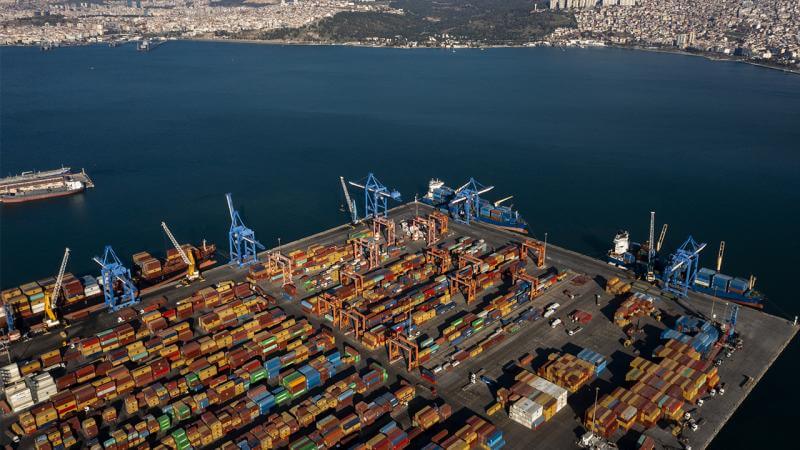Abu Dhabi is set to buy a stake in the Port of İzmir in western Turkey, four sources aware of the deal told Reuters, in a further sign of a rapprochement between the once bitter geopolitical rivals.
Under the potential agreement, state-controlled AD Ports Group would invest in an entity to be established by the Turkey Wealth Fund to run the Aegean coast Port of İzmir, also known as the Port of Alsancak, two of the sources told Reuters. The sources requested anonymity to discuss details of the deal that has yet to be finalized.
The size of the stake was not immediately clear, but one of the sources said the deal could be valued at about $500 million. The port, owned by Turkey’s sovereign wealth fund, is an important gateway that is in need of new investment. An official for the Turkey Wealth Fund declined to comment. AD Ports didn’t immediately respond to a request from Reuters for comment, while ADQ, the emirate’s sovereign wealth fund and majority owner of the ports group, wasn’t available for comment.
İzmir Mayor Tunç Soyer, from the main opposition Republican People’s Party (CHP), on Monday reacted on X, formerly Twitter, to the Reuters report about the possible sale of a stake in the Port of İzmir to the UAE.
Bazı güncel haberler yoluyla İzmir Alsancak Limanı’nın Birleşik Arap Emirlikleri’ne satılma gayreti ve planları olduğunu öğrendim.
Bu topraklar atalarımızın kanlarıyla sulanarak bize emanet edilmiştir.
Bu yüzden İzmir Limanı’nın bulunduğu bölgeye “Al Sancak” denir.
İktisat…
— Tunç Soyer (@tuncsoyer) December 18, 2023
Soyer has voiced strong objections to the sale, saying that such a move could cost Turkey to lose its sovereignty rights in the port.
He advised Turkey’s government to establish factories, invest in agriculture and develop projects for the younger generation if it wants to rescue the country’s ailing economy.
“Give up selling the ‘value’ of İzmir and our country. The Port of İzmir belongs to the people of İzmir and every citizen of the Republic of Turkey,” said the mayor.
The planned transaction comes as Turkey’s government seeks foreign investment to accelerate its U-turn away from years of unorthodox economic policies that had sent inflation soaring and the currency plunging.
Ports play a key role in the strategic shift in global manufacturing. Weaknesses in supply chains exposed by the COVID-19 pandemic and heightened geopolitical tensions are spurring a shake-up as companies seek to bring production closer to the points of sale.
Meanwhile, Turkey hopes that an aggressive rate-hiking cycle launched in June will lure back foreign investors after years of exit, including foreign direct investment (FDI).
Some Western investors are starting to tip-toe back in to the markets. Turkish President Recep Tayyip Erdoğan met with UAE President Sheikh Mohamed bin Zayed Al Nahyan on the sidelines of the COP28 UN climate summit in Dubai earlier this month. ADQ is chaired by National Security Adviser Sheikh Tahnoun bin Zayed Al Nahyan, a brother of Sheikh Mohamed.
Turkey and the UAE began to repair ties two years ago following a bitter rivalry that was in a large part driven by ideological difference which saw the regional powers back opposing sides across the Middle East and North Africa.
UAE officials have since said they see huge investment opportunities in Turkey, including in energy and logistics. The Dubai state-owned port operating giant DP World bought a majority stake in a Turkish port earlier this year.
The UAE and Turkey signed a free trade agreement in May that was meant to make investment easier.
The two countries agreed a series of deals worth more than $50 billion in July as the Turkish president visited Gulf states in a bid to revive the economy.

